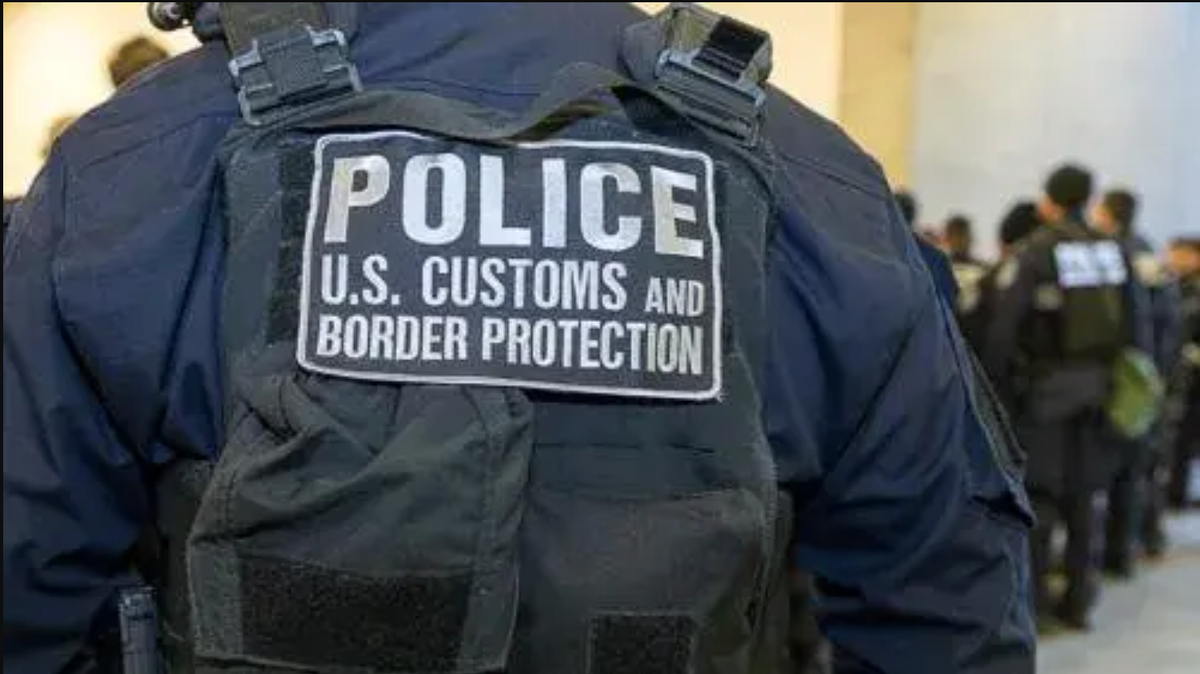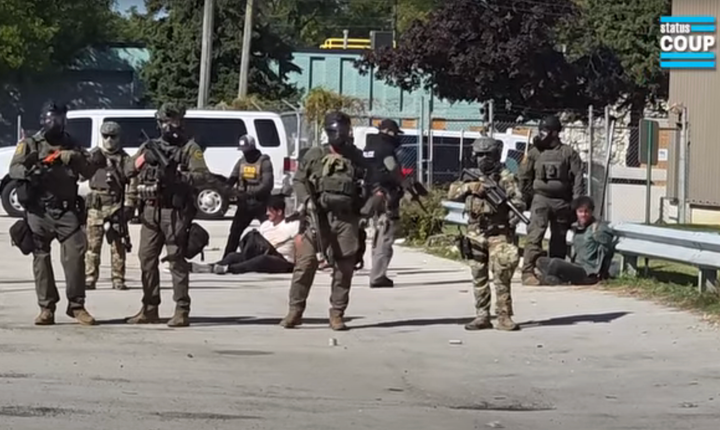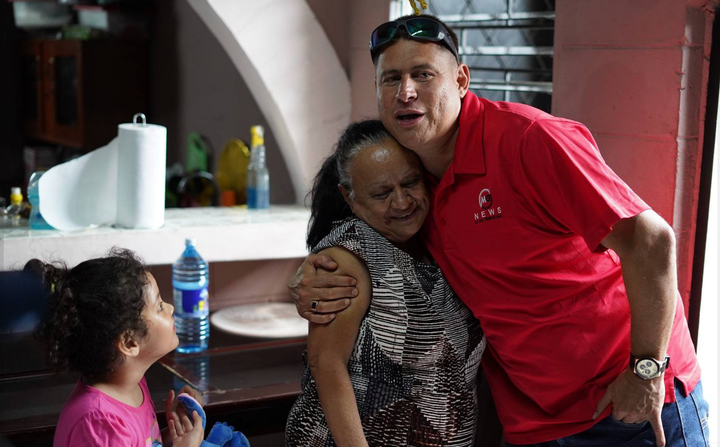US Court Rules Against Warrantless Border Searches Of Cellphones
No appeals court had taken the position that warrantless border searches were unconstitutional. The court took an overdue step forward and defended travelers' rights.

The following is an exclusive article for paid subscribers of The Dissenter Newsletter. All new exclusive articles are available to everyone in August. Become a subscriber with this special offer and support independent journalism on press freedom.
A United States court ruled on July 24 that the Fourth Amendment right to privacy in the U.S. Constitution protects travelers from “nonroutine searches” of their cellphones at the border.
There is a “substantial risk that allowing warrantless searches of incoming travelers’ electronic devices will unduly burden, chill, or otherwise infringe upon their First Amendment activities,” Judge Nina Morrison also acknowledged.
Scott Wilkens, a senior counsel at the Knight First Amendment Institute, praised the decision. “As the court recognizes, warrantless searches of electronic devices at the border are an unjustified intrusion into travelers’ private expressions, personal associations, and journalistic endeavors—activities the First and Fourth Amendments were designed to protect.”
“The ruling makes clear that border agents need a warrant before they can access what the Supreme Court has called ‘a window onto a person’s life,” Wilkens contended.
In 2021, the U.S. Court of Appeals for the First Circuit overturned a lower court that decided border agents and officials must have “reasonable suspicion” to search “entrants’ electronic devices.”
“The First Circuit acknowledged that the First Amendment provides protection—independent of the Fourth Amendment—against government searches of electronic devices,” said Knight First Amendment Institute attorney Stephanie Krent. But the court “brushed these concerns aside, concluding that warrantless searches of devices at the border are ‘plainly legitimate,’ without actually reckoning with the First Amendment interests at stake.”
On May 5, 2023, the Eighth Circuit Court of Appeals reviewed a case involving a Chinese national named Haitao Xiang, who was accused of stealing trade secrets from Monsanto. The appeals court ruled that U.S. Customs and Border Protection (CBP) agents did not need a warrant to search and seize Xiang’s electronic devices.
Yet in a brief [PDF] filed by the Knight First Amendment Institute, Reporters Committee for Freedom of the Press, and other groups, it was outlined that CBP had seized Xiang’s electronics while he was traveling from Chicago to visit his family in China. They were sent to the St. Louis division of the FBI, where the FBI had them forensically imaged and searched for “intellectual property theft” ten days after they were seized.
"Although the FBI ultimately obtained a warrant authorizing a search and seizure of the devices, it did not do so until seven days after the devices were searched and seventeen after they were seized,” the groups recounted. “In a typical investigation, there would be no question that the warrantless search of Mr. Xiang’s devices was unconstitutional.”
Nevertheless, the appeals court basically overlooked all freedom of expression and privacy concerns raised by the warrantless search and seizure that was conducted by border agents.
That is why the decision from Judge Morrison for the Eastern District of New York is remarkable. Morrison recognized that the U.S. Supreme Court has yet to address “whether a search of a traveler’s phone or other handheld electronic device at the border” is a “routine search” or a “nonroutine search.” The Supreme Court also has not addressed whether border agents must have “reasonable suspicion” for a “nonroutine search” or a “warrant and probable cause.”
The court looked to a landmark precedent, Riley v. California, where the Supreme Court ruled that the warrantless search and seizure of the contents of a cellphone violates the Fourth Amendment. It declared that searching a cellphone at the border is a “nonroutine search.”
No appeals court had taken this position. But the court insisted that “categorically exempting border officials from the Fourth Amendment’s warrant requirement” would allow for privacy violations against an individual’s “reasonable expectation of privacy in the breathtakingly large trove of personal data stored on their cellphones.”
Attorneys for the U.S. government asked the court to rule that “no individualized suspicion was needed” for border agents to search a traveler’s cellphone. Judge Morrison called out the U.S. government for taking the “remarkable position” that cellphones should not be treated differently than any other property that travelers carry across the border.
"In essence, the government argues that no practical limits should be placed on cellphone searches at the border whatsoever, as long as they fall into what agents categorize as a ‘manual’ search (i.e., one unaided by extrinsic technology but limited only by the border agents’ time and interest in examining the phone’s contents),” Morrison stated.
The standard for a “routine search,” however, is supposed to be determined by the "level of intrusion" into a person’s privacy, and according to Morrison, the U.S. government failed to account for “substantial privacy intrusions” as well as the “Supreme Court’s Fourth Amendment jurisprudence.”
Notably, the court considered the risk of allowing “warrantless searches of incoming travelers’ electronic devices” and the chilling effect that has on a person’s First Amendment activities. Morrison pointed to the “persuasive case” made by the Knight First Amendment Institute and Reporters Committee for Freedom of the Press against warrantless searches of cellphones.
“[They] assert that border searches of electronic devices burden freedom of the press by chilling reporter-source communications. They argue that “[j]ournalists are particularly vulnerable to the chilling effects of electronic device searches, both because confidential or vulnerable sources may refuse to speak with reporters for fear that anything they say may end up in the government’s hands, and because such searches can be used to retaliate against or deter reporting critical of the government.”
Documented attacks on journalists were at the core of this part of the decision. So it is worth quoting fully:
Amici’s concerns are not hypothetical but instead are based on the recent experience of numerous journalists who were flagged for secondary inspection and were required to surrender their electronic devices for warrantless searches and, in some cases, downloading of the devices’ contact lists and contents based on these journalists’ ongoing coverage of politically sensitive issues, like migration through the U.S.-Mexico border.
After formal complaints were filed regarding a series of such incidents in 2019, it was revealed that they may not have been the isolated acts of individual border agents who suspected that a particular traveler’s device contained contraband but instead part of a targeted effort to surveil journalists in particular: a non-public CBP database that contained the names of journalists covering migration issues and which pushed “alerts” to flag those journalists for secondary screening when they returned from international travel. And even without the specter of larger, insidious effort targeting journalists at the border, there remains a considerable and undue risk that—without the safeguards of a judicial warrant—journalists’ sources in and outside the United States will be fearful of relaying information about matters of public concern to them.
Files that the Knight First Amendment Institute obtained through a Freedom of Information Act lawsuit in 2017 confirmed that border agents had explicitly targeted members of the press.
Overall, the court thoroughly confronted how easy it is for U.S. border agents to abuse their authority and violate an individual’s rights when they are allowed to engage in warrantless searches of electronic devices.
The decision was a necessary and overdue step forward in defending privacy rights and the right to freedom of expression for all travelers, including journalists.




Comments ()